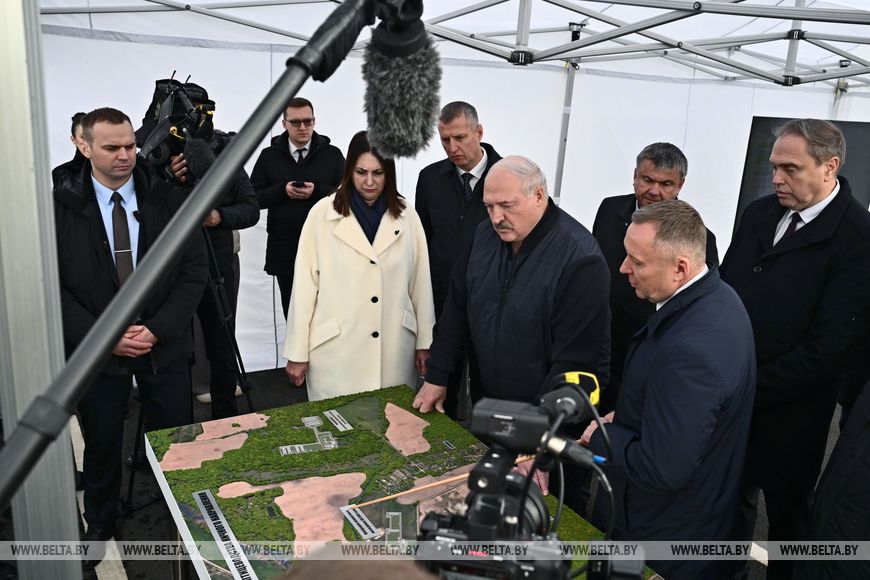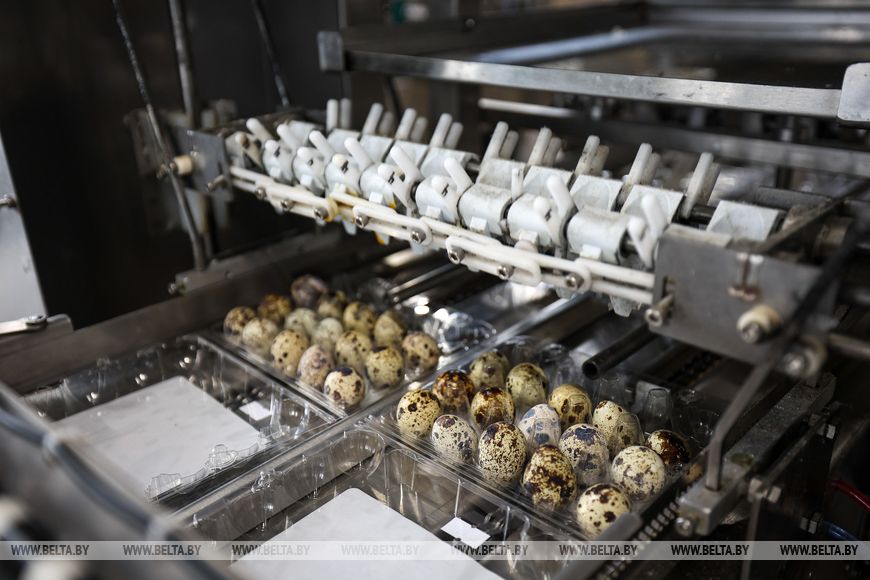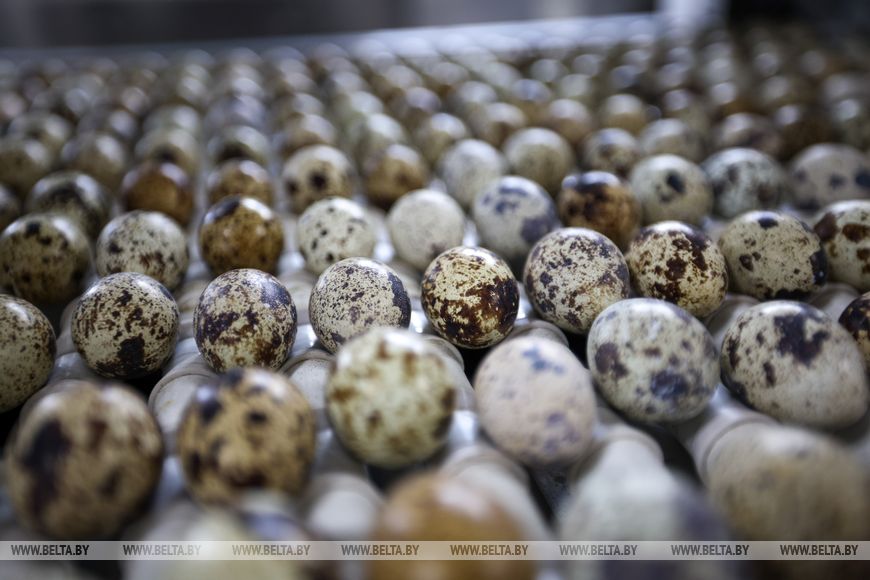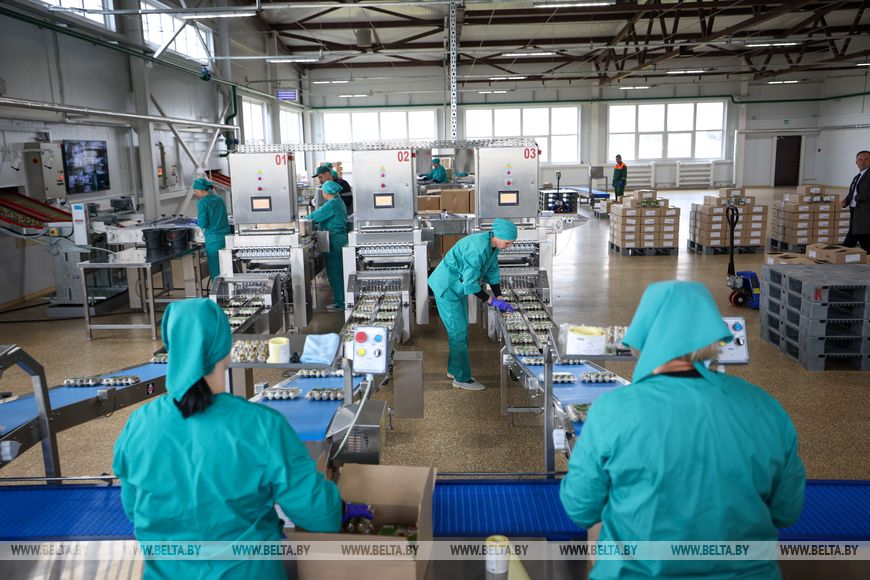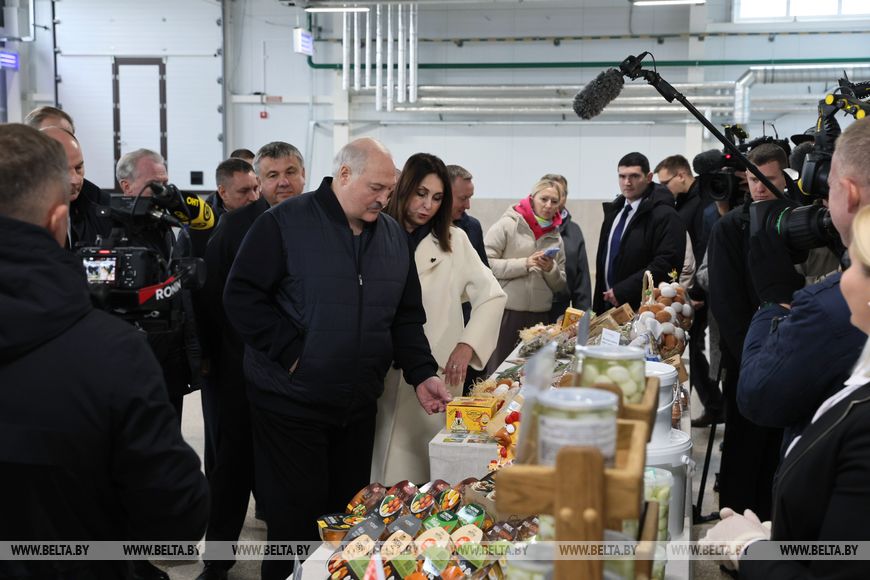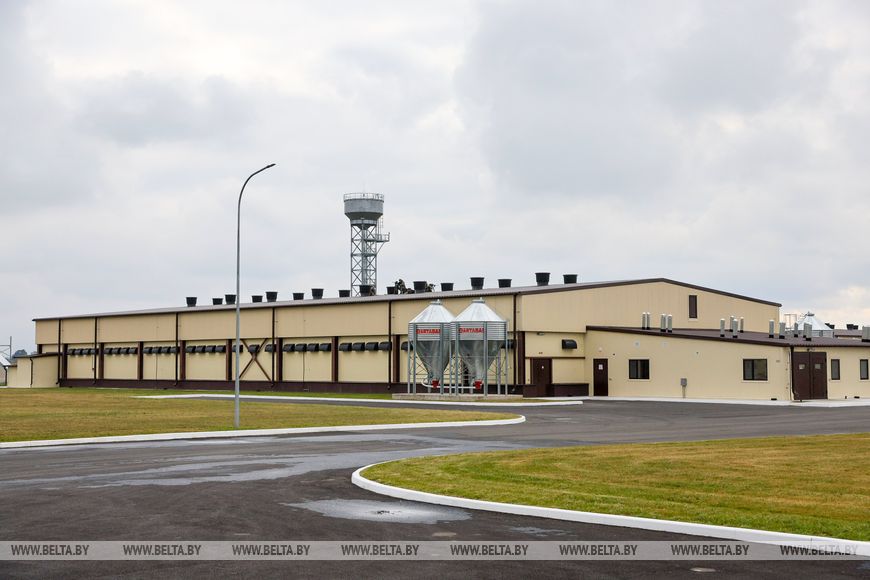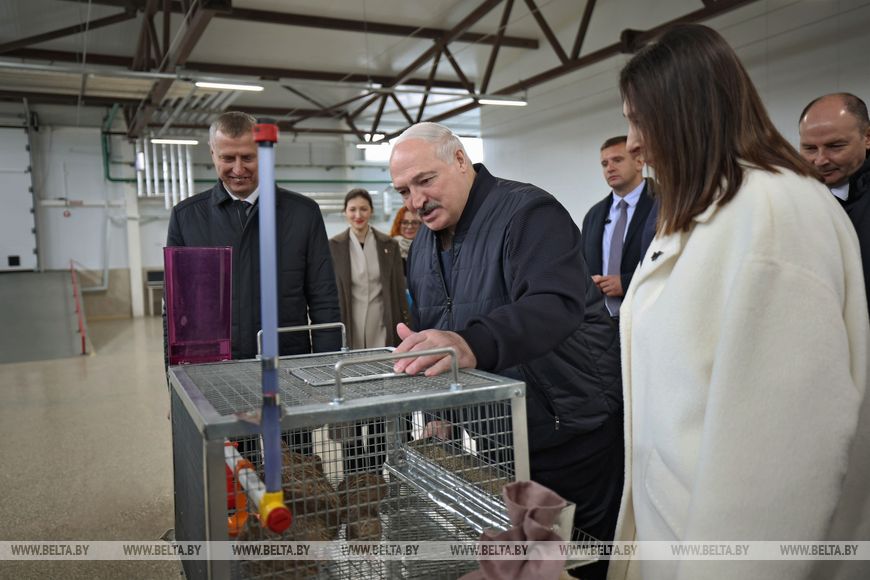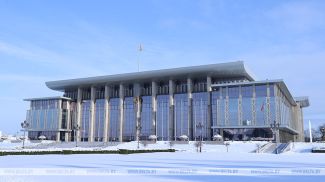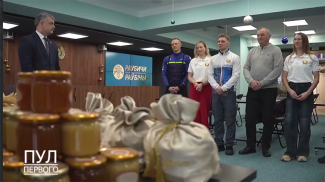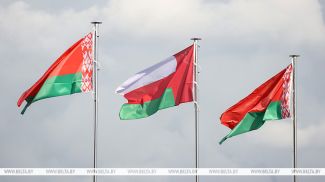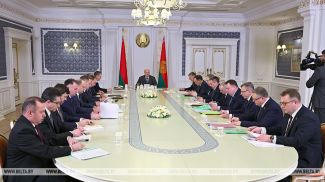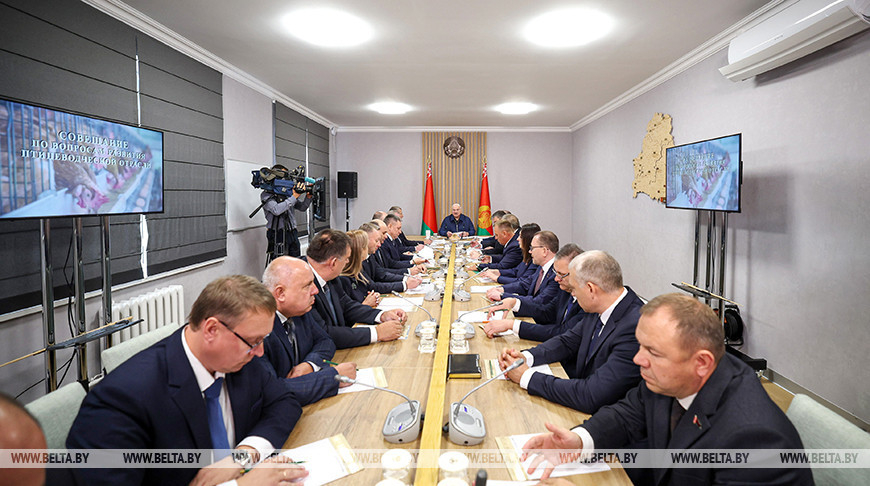
SOLIGORSK DISTRICT, 3 October (BelTA) – A government conference was organized to discuss the development of the country’s poultry farming industry as part of the working trip of Belarus President Aleksandr Lukashenko to Soligorsk District and a tour of the local poultry factory, BelTA has learned.
At the beginning the head of state briefly identified positive results secured by the industry but warned right away that the conversation would not be focused on that.
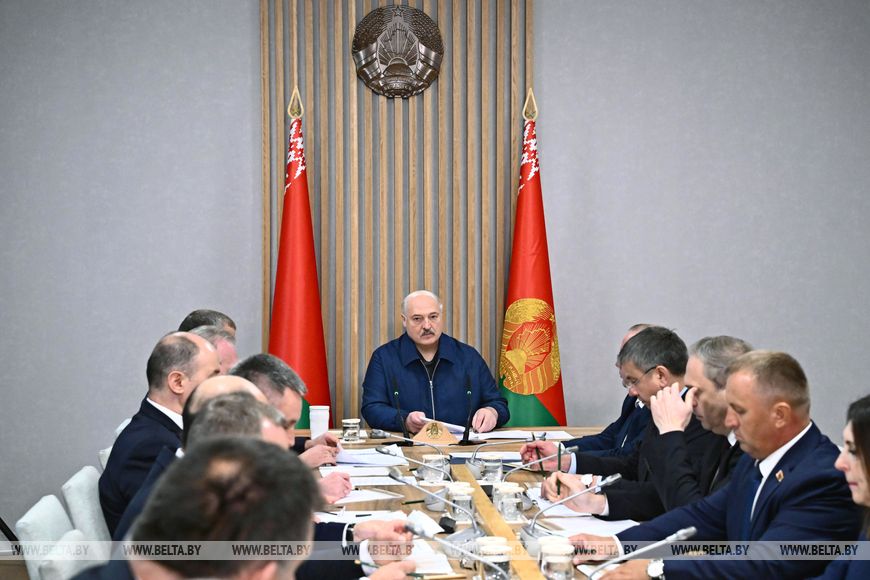
According to the president, Belarus is the region’s leading manufacturer of poultry meat and eggs, with 407 eggs made per capita and 63kg of poultry meat in carcass weight terms sold per capita in 2024.
Aleksandr Lukashenko remarked: “Products of the poultry farming industry are always in demand and generate very good profits with skillful management. In 2024 the profitability of poultry meat sales totaled 8.5% while the profitability of egg sales was close to 20%.” As far as these types of products are concerned, Belarus enjoys food security: poultry meat production exceeds the domestic demand by nearly 60%, with egg output over the domestic demand by nearly 30%.
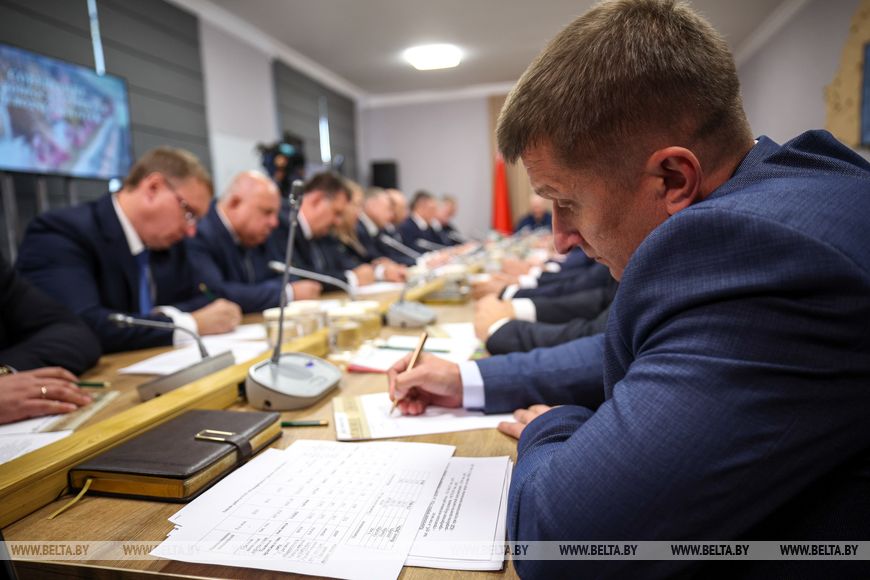
“But today’s conversation will not focus on our accomplishments in this regard but on problems and new trends in the industry,” the head of state advised participants of the conference.
First of all, the president drew attention to the enlargement of enterprises. In his words, the matter needs a balanced approach. As many as 38 agricultural enterprises raise birds: 20 enterprises make meat and 18 enterprises make eggs. Broiler chickens, ducks, and turkeys are farmed in Belarus. Chicken eggs and quail eggs are made. The range of products made of poultry meat is expanding.
Meanwhile, six broiler chicken poultry factories account for a lion’s share of poultry meat production. Those are Druzhba, Vitebsk Broiler Poultry Factory, Belorusneft-Osobino, Agrokombinat Dzerzhinsky, Smolevichi Broiler, and Servolux Agro.
“These enterprises operate efficiently: they use modern technologies, make quality products, practice advanced processing, and export products in addition to domestic sales. Are the other poultry factories capable of competing with them? Do we need this competition?” the president identified the key questions. “What do we do next? Should we interfere with their development? Should they develop on their own or should we make other decisions? What are we going to do about small enterprises? Will we build new poultry factories or should we consider their reorganization by means of merging them with more efficient poultry factories?”
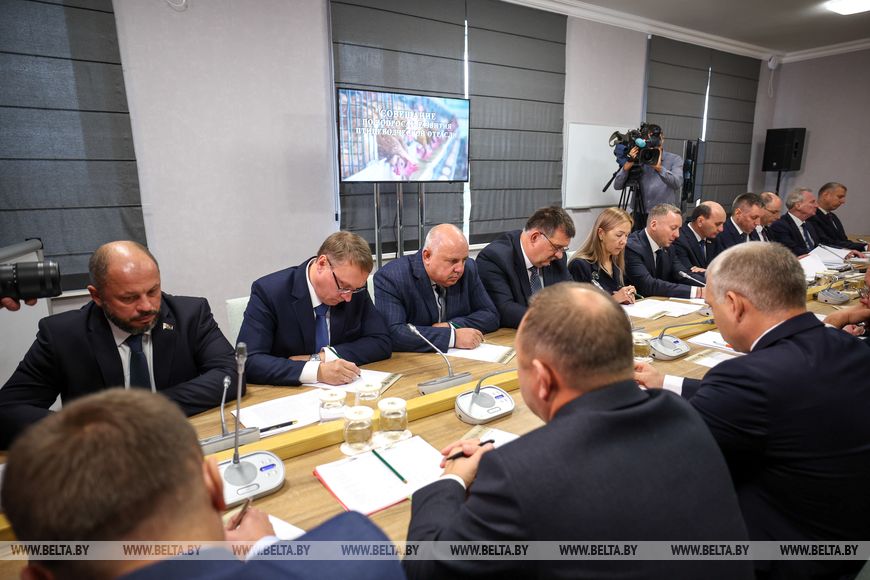
Aleksandr Lukashenko remarked that it is necessary to approach the future fate of small poultry factories in a comprehensive manner and definitely take into account the fact that they have certain skills and personnel, who are familiar with peculiarities of the industry’s operation. “We cannot lose these people. Building a poultry factory in an empty lot is not a problem today. The problem is personnel, the people,” the head of state explained. “Skillful and committed poultry farmers are necessary.”
The second topic raised by Aleksandr Lukashenko was animal mortality. According to the head of state, the situation is not getting better. As many as 22.5 million birds died during incubation and fattening last year. Nearly 15 million died in January-August 2025. Individual oblasts report a considerable increase in animal mortality: Grodno Oblast (120% as against the same period of 2024), Minsk Oblast (116%), and Vitebsk Oblast (115%).
“Unfortunately, the number of animals is increasing slowly. Only 3% up in 2024 in comparison with 2023,” the president stated.
He stressed that the reasons are trivial: unbalanced fodder base, outdated infrastructure, but more often than not mismanagement and sloppiness. For instance, the poultry factory Zapadnaya in Stolin District fed birds with compound feed past its best before date.
“Violations of operating procedures are still being registered: workers bring personal belongings onto the premises, they bypass disinfection control rooms to get into the clean area, they work without protective clothing,” Aleksandr Lukashenko said. “Some poultry farming organizations have not ruled out the possibility of infestation with synanthropic birds. Pest control measures are not enforced in full. We fail to do basic stuff.”
Apart from that, birds are not always vaccinated, which means they are at risk of catching diseases. Individual facilities lack the necessary amount of disinfectants, medications and fail to implement preventive care measures. Operating procedures and veterinary rules get violated.
“It has a lot to do with the shortage of personnel because poultry factories have 90% of the veterinary and zootechnic specialists they need,” the president remarked.
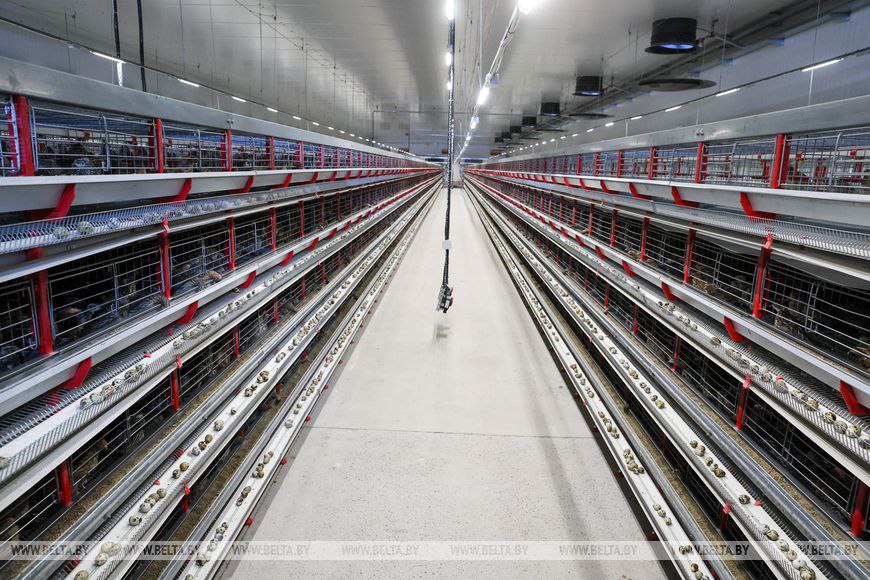
Aleksandr Lukashenko stressed that talks about personnel shortages need to stop as a whole by making sure the relevant specialists keep doing their jobs. “If we train specialists, they need to do the jobs they have been trained to do. And that should be the end of it,” the head of state instructed. “Dmitry Nikolayevich [Krutoi, Head of the Belarus President Administration], the problem must be resolved once and for all.”
Perspectives and new avenues in poultry farming were the third topic raised by the president during the government conference. For instance, Soligorsk Poultry Factory has set up an innovative quail farm that the head of state has visited. Agrokombinat Dzerzhinsky has built a complex for making turkey meat. “These new ‘fashionable’ trends are useful and even necessary for the people. This is why there is demand on the home market and abroad,” the Belarusian leader said. He reminded that some time ago it was necessary to popularize the idea of consuming turkey meat and explain its benefits.
“What is your vision of the future strategy for developing this industry? What new avenues in poultry farming can we develop? Or should we step up the existing ones?” Aleksandr Lukashenko addressed participants of the conference.
Export was the next important aspect. In 2024 Belarus exported nearly 250,000 tonnes of poultry meat worth nearly $0.5 billion in addition to 835 million eggs to the tune of $71 million.
“The country is one of the world’s top 15 exporters of poultry meat and eggs. Our main business contacts are Russia, China, and the CIS states. However, Russia provides itself with poultry meat and eggs. China also reports high production growth rates,” the head of state pointed out. “Where do we find new markets?”
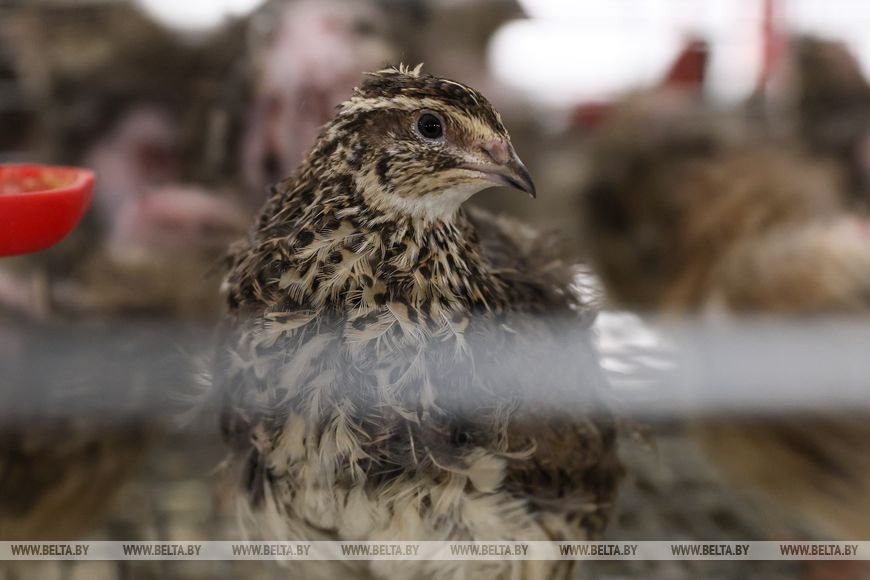
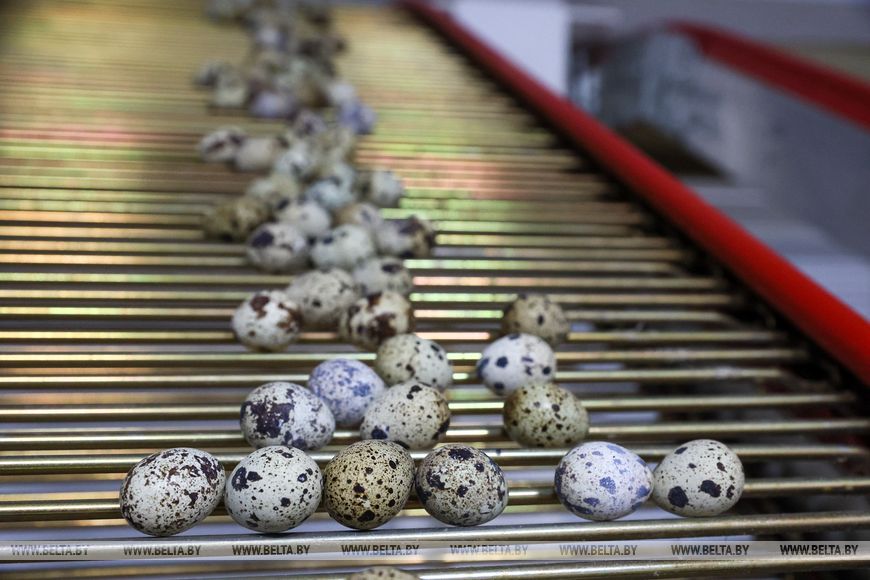
Ways to reduce the industry’s dependence on imports were also mentioned. At present Belarus has no alternative to importing chicks for the production of hatching eggs. Grandparent stock for broiler chickens is imported to supply parent stock for poultry factories. The same practice is used in egg production. Every poultry factory works directly with foreign partners. “We’ve reached a point that we will stop importing eggs soon. We may need 5-7 years in order to phase out imports if scientists get down to it right now,” the president said.
“Total dependence on imports does not guarantee the stable operation of poultry factories,” Aleksandr Lukashenko stressed. “Every incoming shipment of birds carries the risk of introducing new infections and disrupting supplies, which is very relevant.” This is why the president wondered how the issue of the insufficient capacity of parent stock facilities in egg production and meat production would be addressed.
The head of state also recalled the instruction to set up a selection and genetic center for making domestic pedigree products. The instruction was given in 2023. It should be a unique enterprise for Belarus with a complete cycle but so far only 3% of it has been built. This is why the president instructed all the interested parties to pitch in and help commission this enterprise as soon as possible. Especially since the equipment is already available. “It has to be done fast. Within the next year. If need be, we will get involved. It has to be built fast,” the president identified the task.
In conclusion the president directed attention to the matter of scientific support for the industry. “Poultry meat farming still depends on imports as far as original lines are concerned (the grandparent herd), but I know that egg producers are working hard to make domestic chicken cross breeds. Our scientific advances in selection should give a new impulse to the development of efficient poultry farming. Meanwhile, we cannot leave all kinds of birds unattended,” the head of state identified priorities for scientists.
The president stressed that decisions that would give an additional impulse to the development of the industry should be worked out as a result of the government conference.
